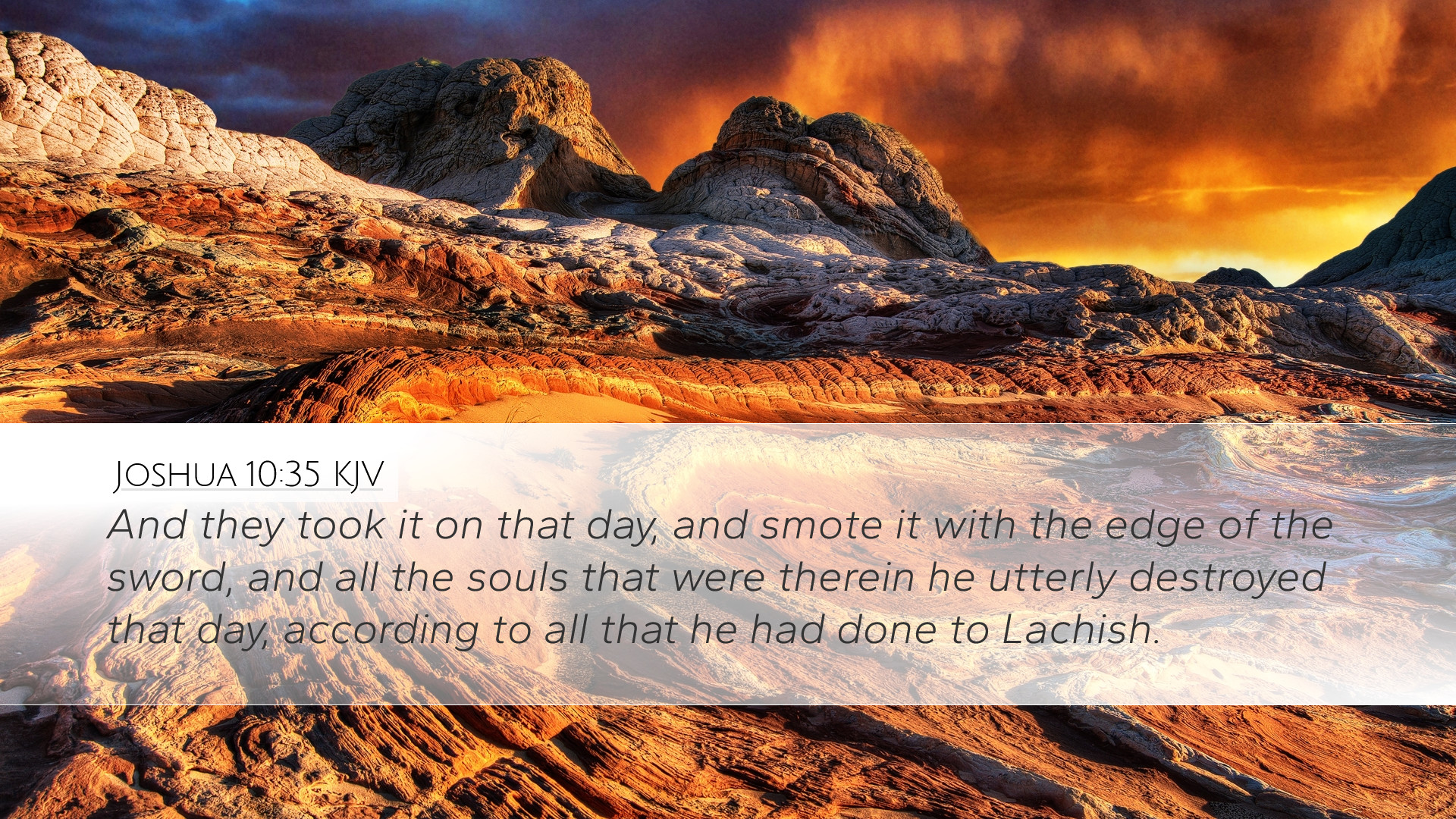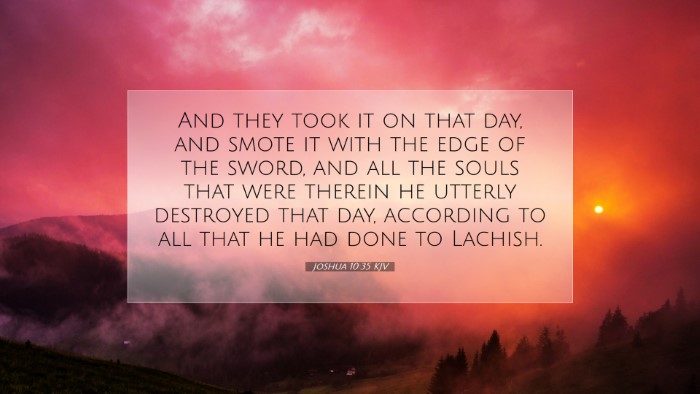Commentary on Joshua 10:35
Verse Context: Joshua 10:35 reads, "And that day Joshua took Makkedah, and smote it with the edge of the sword, and the king thereof he utterly destroyed, them, and all the souls that were therein; he let none remain: and he did to the king of Makkedah as he did unto the king of Jericho." This verse falls within a vivid narrative detailing Israel's conquests during Joshua's leadership in Canaan.
Historical Insight
The conquest of Makkedah is part of the larger campaign against the southern cities of Canaan. This event signifies not just a military victory but also a fulfillment of God's promise to the Israelites regarding their inheritance of the land. Commentators such as Albert Barnes highlight that the destruction of Makkedah serves as a testament to God's judgment upon the inhabitants of these lands, who were given specific opportunities to repent but instead chose idolatry and rebellion.
Theological Implications
Understanding Divine Warfare: Matthew Henry emphasizes the theological reality of divine warfare throughout Scripture. The conquest narratives illustrate God's judgment against sinfulness in societies. The annihilation of Makkedah's king and its people reflects God's ongoing battle against sin and his commitment to bringing order through His chosen people. This action raises critical questions about God's justice, mercy, and the nature of divine sovereignty.
Discussion Points:
- The Nature of God's Judgment: God's judgment is portrayed as severe yet necessary for the establishment of His kingdom.
- Representation of Spiritual Warfare: The physical battles mirror the spiritual battles believers face today against sin and temptation.
- Historical and Cultural Context: Understanding the Canaanite practices provides insight into the severity of their judgment.
Exegesis of Key Terms
When examining Joshua 10:35, attention should be given to specific phrases and their implications:
- "Smote it with the edge of the sword": This phrase signifies total conquest and reflects ancient Near Eastern warfare practices.
- "Utterly destroyed": The Hebrew term used signifies complete destruction—a common motif in the conquest narratives, which emphasizes the seriousness of God's commands.
- "He let none remain": This may reveal the contrasting mercy God had shown to Israel by making them His abiding hope amidst pervasive sinfulness in the land.
Application for Today's Believers
This passage prompts modern believers to reflect on several critical aspects of faith and leadership:
- Divine Command and Obedience: Joshua's adherence to God's command suggests that leaders must seek divine guidance and obedience in their undertakings.
- Understanding the Consequences of Sin: The destruction in Makkedah serves as a reminder of sin's seriousness and God's aversion to it.
- Hope in Divine Justice: This account encourages believers that God will ultimately administer justice, reaffirming His holiness and sovereignty in the face of evil.
Conclusion and Reflection
Joshua 10:35 is a significant verse within the narrative of Israel's conquest of Canaan. By combining the insights from public domain commentators, we establish a multidimensional understanding of its implications—from the historical and theological dimensions to the practical applications for believers today. Joshua's actions in this verse challenge pastors, students, and theologians to engage deeply with Scripture, acknowledging both God's justice and His love, which guide believers through the complexities of faith in a fallen world.


